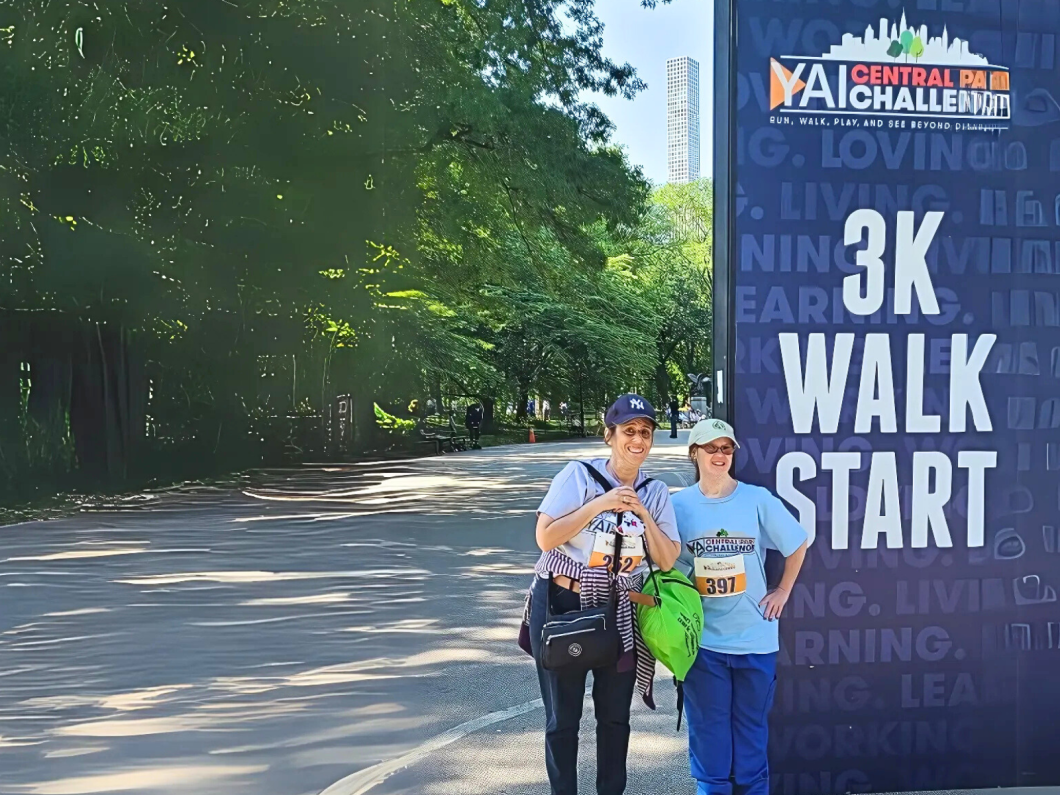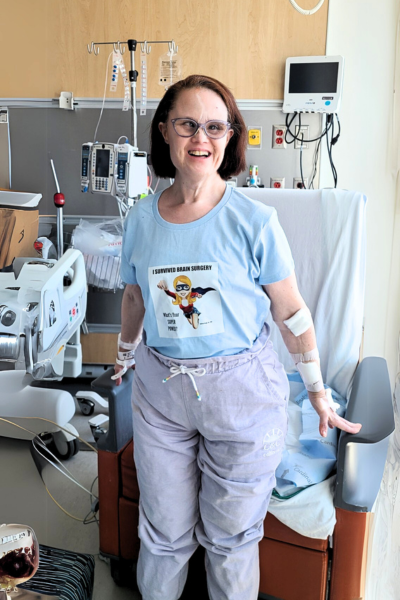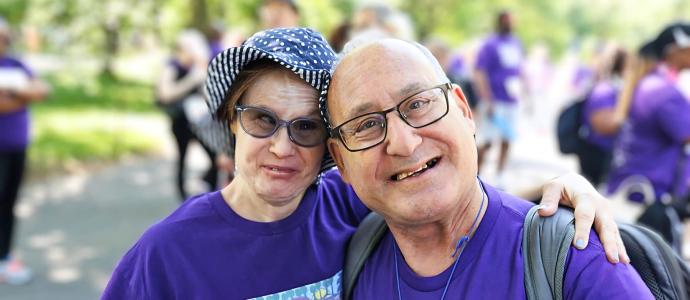Share
Nothing could keep Janice McPhillips away from the 2022 Central Park Challenge. After a harrowing medical crisis in 2021 and the challenges of navigating life during a global pandemic, she was more determined than ever to show up for her community—and to celebrate alongside fellow people with intellectual and developmental disabilities (I/DD).

“I took about 20 steps after I got myself out of my wheelchair, but I did it,” McPhillips proudly recalled. “I wanted to walk for people with disabilities because I am one and we deserve to be recognized like everyone else.”
Her determination echoed Central Park Challenge’s broader push for inclusivity. In 2022, thanks to YAI efforts, a handicapped ramp was installed at the Naumburg Bandshell for the first time in the park’s history, where it was used by McPhillips and other performers and advocates with disabilities.
At 53, McPhillips, who was born and raised in City Island in the Bronx, has dedicated nearly two decades to self advocacy through YAI, passionately using her voice to break down barriers and drive change for people with I/DD. She’s served as both president and vice president of YAI’s self advocacy group and has shared her story in classrooms, at rallies, and on the global stage. Since 2017, she’s spoken with students at the Fashion Institute of Technology, rallied in Albany for greater investment in Direct Support Professionals and disability services, and even addressed audiences at the United Nations. Her work with campaigns like “Erase the R Word” and contributions to YAI’s Self Advocates Newsletter highlights her unwavering commitment. And decades before that, she was a regular on Sesame Street, helping teach kids about life with Down syndrome.
This year, McPhillips will be honored with the inaugural Bert and Pearl MacLeech Advocacy Award at Central Park Challenge on May 31. As New York’s largest celebration of people with I/DD, the event has united thousands annually since 1986. It features live performances, children’s races, accessible carnival games, and culminates in a 3K walk. The event raises crucial funds to support YAI’s mission of helping people with I/DD live, love, work, and learn as fully included members of their communities.
“Janice has been a tireless advocate, both in her community and at the legislative level,” said Jessica Stinchcomb, Director of Special Events at YAI. “Her magnetic personality draws people in, and she embodies one of the most powerful parts of our mission—amplifying the voices of people with disabilities. Janice hasn’t just shared her own story but has encouraged so many others to find their voice too.”

In 2021, McPhillips experienced a stroke following hip surgery and significant blood loss. She was later diagnosed with Moyamoya syndrome, a rare condition that restricts blood flow to the brain and can lead to multiple strokes. After two major brain bypass surgeries, McPhillips now lives with vascular dementia, seizures, and symptoms of early-onset Alzheimer’s.
“It’s amazing Jan didn’t just fold and accept that this was the end. She never gave up,” said Alison Chilson, McPhillips’ older sister. “She always wanted to get better, to keep living, to keep going.”
Today, despite needing full-time support and care, she remains committed to advocacy, now serving on YAI’s Easy Read committee to make information accessible for people with I/DD. Even while recovering in the hospital, McPhillips stayed engaged—joining meetings, making her newsletter deadlines, and staying connected to her cause.
“I felt like I had to keep doing my part, even when I was having a hard time,” she said. “Staying positive and having something to look forward to helped me get through those dark days… I feel lucky I survived it.”
Community support plays a vital role in the recovery and well-being of people with disabilities following a medical crisis. Studies have shown that people with I/DD are more than twice as likely to experience chronic loneliness compared to the general population, which can lead to poorer physical and mental health outcomes, including increased rates of depression and earlier mortality. Activities such as support groups, volunteering, and community events help foster resilience and a much-needed sense of belonging.
That’s exactly what Central Park Challenge has done for decades by creating a joyful, welcoming space for the neurodivergent community, who, despite historic progress, still face persistent barriers. It's also why McPhillips and her peers continue to show up, making themselves visible in the very communities they’ve long enriched with their voices, advocacy, and contributions.
“Jan’s the perfect example of resilience,” said Chilson. “When I’m feeling low or facing something tough, I think about how determined she was, how hard she fought to get better, and how she never stopped advocating for the disability community...it’s proof that with enough fight and heart, it can be done."

